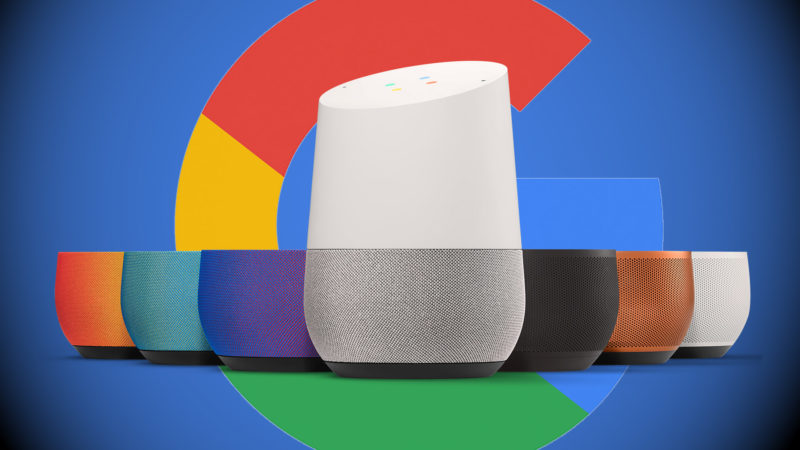
Google generally doesn’t do as well when it builds “follower” products — think Google Plus or Allo. But there are other examples where Google has excelled with later entries (e.g., AdWords, Maps). Right now, Google Home is a follower product seeking to break out of Amazon Echo’s shadow.
On paper, Google should win in this market. It has a larger developer ecosystem. And it has a better assistant. But Amazon is being very aggressive by innovating quickly and offering a dizzying array of devices at different price points. Amazon also has a more powerful sales channel. Overall, Amazon is out-innovating the rest of the “smart speaker” market at the moment.
Amazon now has two devices with screens: Echo Show and the new Echo Spot. According to TechCrunch, Google is also working on a Home device with a touchscreen:
A Home with a touchscreen could run Android apps and offer a stronger screen experience than the sub-optimal Echo Show. It would also enable video calling and be compatible with entertainment services such as Netflix.
Echo Show, right now, doesn’t fully utilize the screen and creates consumer expectations it doesn’t fulfill. An Echo Show 2.0 will likely be an improvement. (I haven’t been hands-on with the new Echo Spot.)
Apple is also well-positioned to offer a smart speaker with a screen — like an iPad Mini embedded in a speaker. It’s not clear whether the company will develop one. Both Amazon and Google are trying to preempt Apple’s HomePod by bringing out smart speakers with better sound that cost less than the $349 price tag Apple wants to charge.
YouTube will be something of a differentiator for Google’s new device. It has withdrawn from Echo Show, allegedly for violating Google’s terms of service.
It remains to be seen how popular touchscreen-enabled virtual assistants are, although preliminary survey data suggests there’s meaningful consumer interest. Regardless, there will likely be in excess of 30 million virtual assistant devices in US households when the smoke clears after holiday shopping is over. You can bet that Amazon will be aggressively promoting its own devices with discounts on its site and mobile apps.
Consumer data also suggests that virtual assistant devices are driving related smart home accessory purchases. The company that wins the smart speaker market will likely also control the smart home ecosystem.
Contributing authors are invited to create content for Search Engine Land and are chosen for their expertise and contribution to the search community. Our contributors work under the oversight of the editorial staff and contributions are checked for quality and relevance to our readers. The opinions they express are their own.



